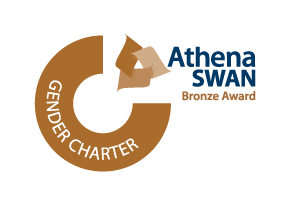LHCS Athena Swan outcomes and impact
Undergraduate students
New Level 1 modules have consistently shown comparable performance of men and women.
A drop in numbers of women studying Chemistry modules the year before our Bronze submission was temporary and monitoring since then demonstrates an approximately equal split by gender.
To understand why women performed less well than men in Human Biology, we analysed:
- prior educational qualifications (PEQs) of students - educational attainment was not significantly different by gender
- whether women were more likely to study as a standalone module – they were not.
The new Human Biology module shows comparable pass rates for men and women and no significant gender differences among students with lower PEQs.
Postgraduate research students
Record-keeping relating to prt-time PG research students has been much improved and is now embedded practice in the School.
PG Research student responses to an LHCS survey and follow-up discussions with this group led directly to the following innovations/practice:
- Additional training in a discipline context is now provided to supplement that provided by the Graduate School Network and supervisors.
- A Student Board has been established with a nominated representative who inputs into reports to Senior Management Team.
- Careers event in 2019 with workshops and Q+A sessions with invited speakers representing different career paths (academia, industry, publishing, administration). Feedback was positive and this is being developed into a series of three events, which will run in 2021.
Academic and research staff
Establishment of core hours policy for meetings within the School. The policy has since been adopted across the STEM Faculty.
Increased numbers of men applied for regional academic posts when these were advertised externally in 2019/20.
Continued extension of Unconscious Bias training with priority given to those with line management and recruitment responsibilities.
Online induction has been promoted and shows improved uptake; was particularly useful for one central academic who started during lockdown.
Staff surveyed every 1-2 years to obtain quantitative and qualitative data on aspects of recruitment, induction, working environment, support for career development, appraisal, promotions etc.
Input into development of a new process for mentoring for staff at all stages, to be launched soon at Faculty-level.
REF Submission rates by gender have been discussed in all review meetings.
We have set up a series of information and training sessions specifically for PDRAs that include: teaching opportunities in the faculty; practical tips on applying for academic roles; applying for fellowships; and STEM roles in industry.
Our Women in Research (WiR) group, led by a female Professor, provides a forum for discussing issues specific to women trying to maintain their research. WiR has sought to identify barriers to women pursuing a research career within the School, and where possible the HoS has made changes to procedures to overcome barriers and enable women to continue their research careers. Examples of this include establishing the core working hours policy, and increased transparency on workload allocation. WiR has also provided a supportive space in which ideas, grant proposals and publications can be discussed, and successes celebrated. An audit of outputs from the group showed an increase in the number of peer-reviewed publications over the 3 years since WiR was established compared to the previous 3 years and an increase in grant applications.
Recruitment of three buddies/mentors for those about to start maternity/adoption leave.
A system has been established of offering mentoring to research-active academics returning to work from maternity/adoption leave to support them in resuming research.
